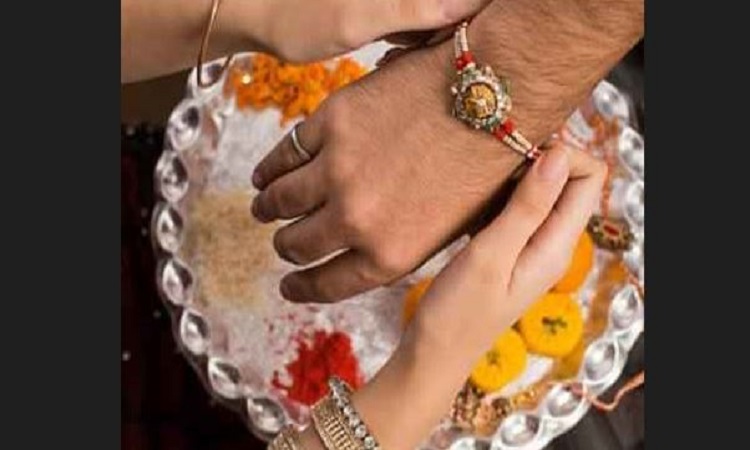
Ayodhya: This year, Raksha Bandhan will be celebrated on the night of August 30 and the festival of Rakhi will not be celebrated the entire day or in the morning hours like previous years, but rather during the night hours.
On Tuesday, Chief Priest of Ram Janmabhoomi Acharya Satyendra Das said that there is no 'muhurat' during the daytime and Raksha Bhandhan will start on August 30 at 8:04 PM and end at 11:36 PM on the same date. This year, the "shubh muhurat' of tying a rakhi is only for 3 hours and 30 minutes.
Every year in India, the festival of Raksha Bandhan is observed to celebrate the unbreakable bond between brothers and sisters, which is commemorated by sisters who tie Rakhi to their sibling's wrist. Raksha Bandhan is observed on the full moon day, also known as Poornima Tithi, of the Shukla Paksha in Shravan Maas (Sawan month).
Every year, Raksha Bandhan is celebrated in the month of August. On this day, sisters, after tying Rakhi on their brothers wrists, apply tilak to their brothers foreheads and bless them for a prosperous and fulfilling life. In return, brothers promise to protect them from all harm and love them unconditionally. Also, brothers give gifts, sweets and money to their sisters to make them feel special and loved.
The celebration of Raksha Bandhan is associated with the epic Mahabharta. According to Hindu mythology, it is believed that after Lord Krishna accidentally cut his finger on the Sudarshan Chakra, princess Draupadi tore a cloth from her saree and tied it around Krishna's wounded finger.
Seeing this gesture, Lord Krishna was overwhelmed and considered the cloth a sacred thread. Also, from that day onwards, Lord Krishna vowed to protect Draupadi at any cost; this is how the festival of Raksha Bandhan came into existence.
When Draupadi came into trouble during the time when the Kauravas tried to shame her, Lord Krishna kept his promise, and he appeared and protected her when everybody from her family did not come forward to help her.
Over the years, the festival of Rakhi has gained a symbolic meaning in Hindu culture. It emphasizes bond between brothers and sisters. Also, the festival serves as an occasion for married women to return to their parent's home to celebrate the festival in the presence of the entire family. (ANI)







